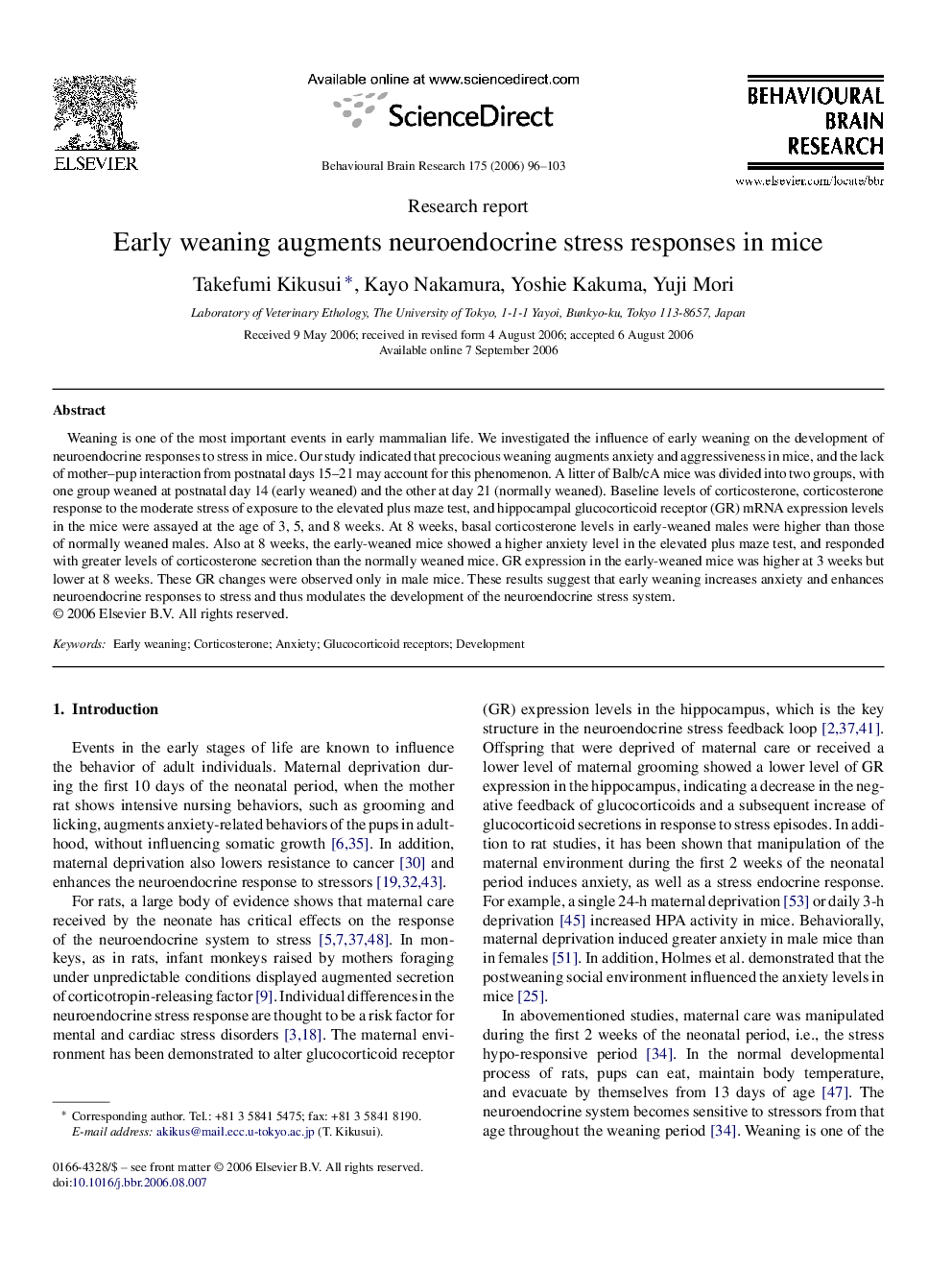| Article ID | Journal | Published Year | Pages | File Type |
|---|---|---|---|---|
| 4315933 | Behavioural Brain Research | 2006 | 8 Pages |
Weaning is one of the most important events in early mammalian life. We investigated the influence of early weaning on the development of neuroendocrine responses to stress in mice. Our study indicated that precocious weaning augments anxiety and aggressiveness in mice, and the lack of mother–pup interaction from postnatal days 15–21 may account for this phenomenon. A litter of Balb/cA mice was divided into two groups, with one group weaned at postnatal day 14 (early weaned) and the other at day 21 (normally weaned). Baseline levels of corticosterone, corticosterone response to the moderate stress of exposure to the elevated plus maze test, and hippocampal glucocorticoid receptor (GR) mRNA expression levels in the mice were assayed at the age of 3, 5, and 8 weeks. At 8 weeks, basal corticosterone levels in early-weaned males were higher than those of normally weaned males. Also at 8 weeks, the early-weaned mice showed a higher anxiety level in the elevated plus maze test, and responded with greater levels of corticosterone secretion than the normally weaned mice. GR expression in the early-weaned mice was higher at 3 weeks but lower at 8 weeks. These GR changes were observed only in male mice. These results suggest that early weaning increases anxiety and enhances neuroendocrine responses to stress and thus modulates the development of the neuroendocrine stress system.
